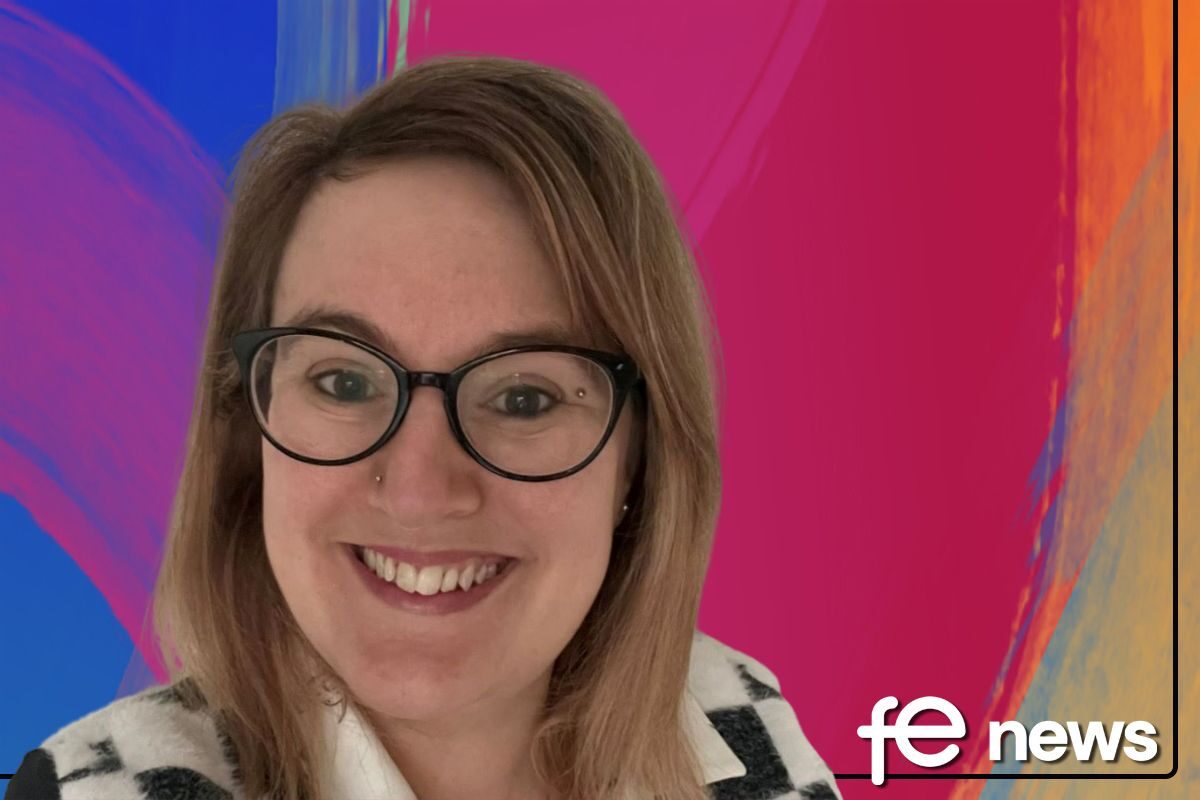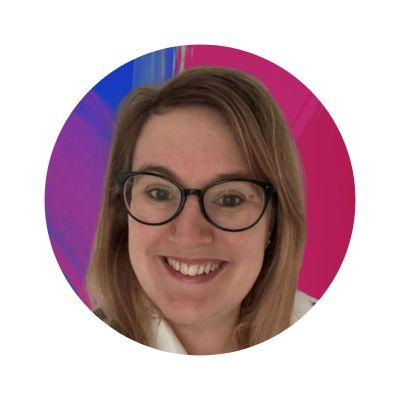ADHD and me

In an exclusive article, Luise Ruddick, Policy Officer from the Federation of Awarding Bodies, talks about her recent ADHD diagnosis and the importance of raising neurodiversity awareness in the sector.
Those of you who’ve met me, or seen me virtually in one of FAB’s webinars, would probably say I am bubbly, chatty and friendly. I like to think I am all of those things, but under the surface I’m also constantly worried about how I’m coming across – am I too loud? Are you laughing with me? Did I accidentally interrupt you? Do you know how hard I’m trying to focus on what you’re saying?
I’ve had lots of labels throughout my life. Chatty. Noisy. Bossy. Dramatic. Messy. Emotional. I’ve always felt things very deeply and am prone to taking things personally. I also suffer massively with imposter syndrome, despite my qualifications and position.
At school, girls were supposed to be seen and not heard
To be ‘good’, I had to be quiet and polite – and I really struggled with one of those things, which is why when I got home I turned into a whirlwind! My room looked like a tornado had ripped through it and I was constantly getting stuck in odd places that I just had to explore further: bent in half in a sleeping bag I thought I could turn around in the bottom of; hanging between bed and wall for an hour until I was found, when I tried to climb from top bunk to bottom through a tiny gap.
Constantly mucky because I’d been up a tree to have a look at the leaves, or trying to find a worm or two, and far too loud to be considered ‘girly’, I found myself with another label – ‘tomboy’!
If I had been a boy, I would definitely have been seen as ‘hyperactive’ and maybe my journey would have been very different. But because I turned it inwards at school, and did well, I fell through the net.
When I was 18, I was diagnosed with anxiety
My mind was constantly chattering and it was exhausting. Being at university and transitioning into being an adult had increased the pressure over the threshold that I could manage.
Through adulthood, I struggled with my mental health and this impacted often on my job. I would struggle to function in noisy environments and would become easily overwhelmed. I had no real sense of time and so everything felt immediate and urgent. The fact that I didn’t enjoy my work made it worse – my mind would wander off really easily and I’d end up rushing to meet deadlines. I’d try and overcompensate by taking on as much as I could to please people, and then have a meltdown.
In my late 30s I retrained as an English teacher and finally found my passion – education! I also discovered something else – I seemed to have a lot in common with my neurodiverse students. I’d always known that there was something different about how my brain worked, and suddenly the pieces fell into place. But in true ADHD style, it seemed overwhelming to try and address, so I did nothing.
In 2021, I started working at FAB and one of the first things I did was take a Cognassist training course to become a ‘neurodiversity champion’. Learning about ADHD through the modules, I couldn’t ignore it – everything matched up. I got a referral to a psychiatrist and then, in November last year, at the age of 42, a diagnosis of combined-type hyperactive and inattentive ADHD.
All those labels, and really it was just one. Neurodiverse.
In the months since, I feel like my life has changed. I’m medicated, and now I sleep better, think clearer, and don’t impulse buy everything fluffy and/or sparkly that I see! Instead of trying to hide my symptoms, I try to alleviate them by using fidget toys or earplugs. My colleagues and bosses at FAB – well, they’ve been just that – fab! Working flexibly means that I can work around my brain needing a little down time, instead of having prescriptive breaks. I’ve also had some ‘reasonable adjustments’ made, with AI apps to take notes in meetings so I don’t miss anything, and colleagues putting things in writing to me so I don’t forget. I also feel able to talk about it if I feel overwhelmed and know that I won’t be judged or criticised.
It hasn’t all been plain sailing
There’s still a lot of stigma and misunderstanding about what neurodiversity is. I’ve been asked why I felt I needed a ‘label’ at my age. And that was just it – I wanted to know why I’ve struggled for so long, and to know that the other labels – ‘quirky’, ‘eccentric’, ‘sensitive’ – weren’t really who I am.
I’m so happy to see all the work being done around neurodiversity – without it, I’d still be struggling. At FAB we’re doing work as part of our EDI pledge to create resources for our members, and we’ll also be sharing the FE News/Coganassist video series. I’m keen to help our members and the wider education community in removing those harmful misconceptions, and providing support to learners and staff – some of who might not even know they’re neurodiverse – and I hope that sharing my story will go a little way to achieving that.
Luise
loud bossy emotional touchy sensitive quirky messy lazy reactive weird neurodiverse
FE News on the go…
Welcome to FE News on the go, the podcast that delivers exclusive articles from the world of further education straight to your ears.
We are experimenting with Artificial Intelligence to make our exclusive articles even more accessible while also automating the process for our team of project managers.
In each episode, our thought leaders and sector influencers will delve into the most pressing issues facing the FE sector, offering their insights and analysis on the latest news, trends, and developments.












Great Article Luise – bringing it to the forefront of careers and education…great stuff! 🙂